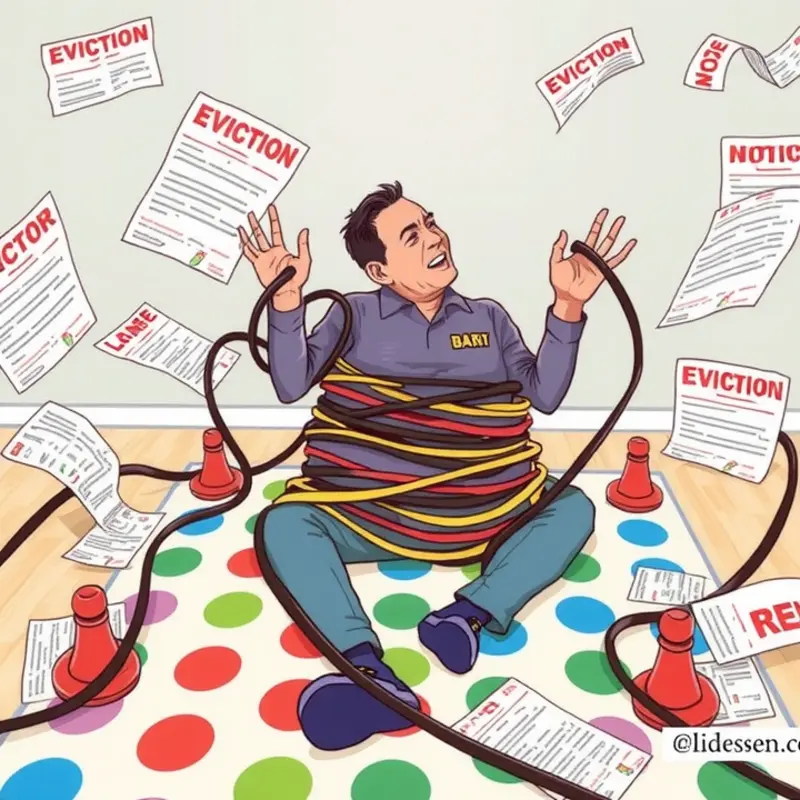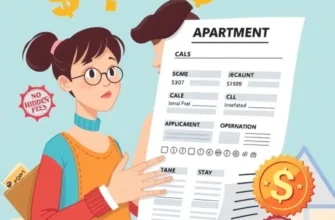Diving into the rental market can feel a bit like navigating a jungle: thrilling but with plenty of potential pitfalls! Whether you’re a young adult starting fresh, a couple looking for your first cozy nest, or a family ready to expand, understanding local rental laws is essential to survival and success in this brave new world. With regulations varying from state to state, knowledge is power when it comes to securing a place that suits your style—and your budget. Do you know when your landlord can enter your apartment? Or what your rights are concerning security deposits? Fear not! We’ve got you covered. Let’s break down the essential rental laws in each state, helping you avoid getting lost in the weeds or, worse, a bad rental experience. So grab a snack, maybe a notebook, and let’s make renting the best part of your adventure!
State-Specific Rental Rights: Know Before You Go

Understanding rental laws across the U.S. is pivotal for navigating your leasing journey effectively. Each state has its own set of guidelines, providing tenants with rights and responsibilities that can significantly affect your living experience. Let’s dive into key rental rights across a few states, focusing on security deposits, rental agreements, and landlord access.
Security Deposits are a common concern for tenants. Most states have regulations over the amount a landlord can require and when it must be returned. For instance, in Florida, landlords are required to return the security deposit within 15 to 60 days of the lease ending, depending on whether any deductions are made. Meanwhile, states like California cap the security deposit at two months’ rent for unfurnished properties, offering different protections. By understanding these rules in your area, you ensure that your finances are secure when moving out.
Moving on to Rental Agreements – these are the contracts that protect both tenants and landlords. In states like Texas, leases must be clear and easily understandable, covering specifics like rent amounts, due dates, and maintenance responsibilities. Many states have a template that landlords should follow, ensuring consistency and legality in rental terms. You can always refer to a rent payment grace period guide to better grasp the implications of late payments, ensuring you stay within your rights and avoid extra fees.
Another pivotal aspect is Landlord Access. Tenants need to be aware of how much notice a landlord must give before entering the property. In Arizona, landlords need to provide at least two days’ notice, unless it’s an emergency. Similarly, in New York, while exceptions are made for emergencies, landlords are generally required to give reasonable notice before entering. Being aware of these laws protects your privacy and avoids unwanted surprises.
Several states also prioritize Tenant Rights to Habitable Living Conditions. The habitability standard ensures your rental space is safe and livable. In Illinois, for example, landlords must adhere to local building and health codes, which include dealing with issues like mold or pest infestations promptly.
Lastly, it’s essential to understand any Rent Control Laws that might affect you. While states like Oregon have statewide rent control, capping annual rent increases, others leave it up to the locality or have no rent control at all. These laws directly impact affordability and predictability of rent prices, making them crucial considerations in your state-specific search.
Familiarizing yourself with these key elements of state-specific rental laws ensures you’re well-prepared to navigate leases with confidence. This knowledge not only safeguards you against potential pitfalls but also empowers you to make informed decisions about where and how you live.
Navigating Rental Pitfalls: Common Laws and Their Exceptions

Renting involves understanding a patchwork of laws that regulate everything from how you can terminate a lease to what constitutes a justifiable rent increase. A foundational piece of knowledge for any renter is the eviction process, which is governed by both state and local laws. Generally, landlords must provide notice before eviction—often 30 days—but rules vary by location and the reason for eviction. For instance, non-payment usually requires a shorter notice than lease violations. Always review your lease agreement and state laws for specifics.
Rent increase notifications can be another maze. Most states require landlords to give tenants advance notice before raising the rent, typically 30 to 60 days. Some states cap how much rent can be increased annually, particularly in areas with rent control laws. For instance, California has strict regulations under the Tenant Protection Act, which limits rent increases to 5% plus the local rate of inflation. However, properties built within the last 15 years are exempt, a nuance easily overlooked by renters.
Understanding lease termination rights is crucial. For example, active duty military personnel can break a lease early under the Servicemembers Civil Relief Act if deployment orders require it. Similarly, some states allow early termination if the renter faces domestic violence or has experienced a habitability issue like a pest infestation where the landlord hasn’t taken appropriate action.
Remember that local ordinances can add layers of complexity. Cities like New York or San Francisco have extensive tenant protection laws that cover just cause evictions and require landlords to justify terminating a lease. Renting in a new city? Check local rental markets and regulations, as they can significantly differ from state laws. For example, local guides like those for Omaha rental neighborhoods can offer insights into city-specific rules.
Gray areas can surprise even seasoned renters. For example, certain rights may not be outlined in state laws but exist through established court cases. In some states, tenants have the right to renter’s safety equipment like smoke detectors, even if not explicitly stated in the lease. Moreover, always scrutinize lease terms for clauses that might seem illegal or unfair. Sometimes landlords insert clauses that waive certain tenant rights. However, such clauses are often unenforceable.
Being well-prepared can help you dodge these rental pitfalls. Always read your lease thoroughly and understand your rights under both local and state laws. When in doubt, consulting a legal expert can clarify confusing points and ensure you stay ahead of potential issues. Keep these insights handy as you navigate the intricate world of renting.
Final words
In the rental landscape, being informed is your best asset. With local rental laws wrapped around the intricacies of lease agreements and tenant responsibilities, you can tackle your first rental experience with confidence. As you prepare for this exciting chapter of life, keeping these guidelines in mind will set you on the right path, helping you avoid the pitfalls. Remember, every corner of the U.S. offers different regulations, so knowing your state’s rules will make sure your rental journey is as enjoyable as it should be—minus the drama and confusion. Happy renting!









